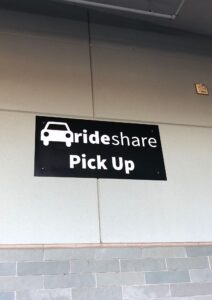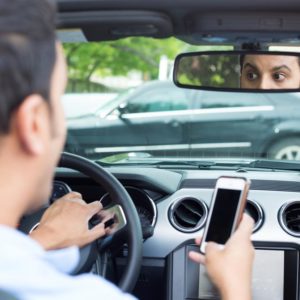Yes, you can sue an Uber driver after an accident, but it will be complicated. The question of whether you can sue an Uber driver if you’ve been involved in an accident is lies at the intersection of technology, personal injury law, and passenger safety. The success of your lawsuit will depend on your ability to establish liability, gather evidence, and work through the legal challenges surrounding Uber accidents.
Consulting with a qualified Uber accident attorney can be instrumental in helping you pursue compensation for injuries and damages resulting from the accident.
Contact Us Today to Schedule
a Free Consultation
In an era defined by convenient and accessible transportation, rideshare services like Uber have revolutionized the way we move around our cities. With just a few taps on our smartphones, we summon drivers to whisk us away to our destinations.These services offer a convenient alternative to driving oneself or relying on public transportation in our nation’s capital. However, this convenience comes hand in hand with potential risks, as accidents involving Uber vehicles have become a concerning reality.
 Common Causes of Uber Accidents
Common Causes of Uber AccidentsRideshare accidents can occur for various reasons, many of which mirror the factors contributing to motor vehicle accidents. One of the primary culprits is distracted driving, as Uber drivers, like any other motorist, can become distracted by their phones, GPS devices, or even conversations with passengers. Additionally, the pressure to fulfill as many rides as possible might lead some drivers to engage in reckless behavior, such as speeding or running red lights, to complete more trips in less time. Fatigue, especially during late-night or early-morning shifts, can impair a driver’s judgment and reaction times, increasing the risk of accidents.
Moreover, adverse weather conditions and road congestion in a densely populated city like Washington, DC, can amplify the chances of accidents. Rideshare drivers might be compelled to navigate through heavy traffic or make sudden maneuvers to reach their destinations promptly, potentially putting passengers and other road users at risk.
Recently, an increasing number of Uber vehicle accidents have been reported nationwide. According to the National Highway Traffic Safety Administration (NHTSA), Ubers have been involved in more than 100 fatal accidents in the United States between 2017 and 2019. Moreover, this same period saw Uber vehicles involved in nearly 3,000 non-fatal accidents, many of which still resulted in severe injuries.
The urban center of Washington, DC, is no exception to the risk of accidents. The proximity of numerous landmarks, government buildings, and entertainment venues makes the city a prime location for rideshare activity. However, this also means that the traffic density and the constant influx of passengers contribute to a heightened risk of accidents.

That being said, suing an Uber driver can be challenging due to the unique nature of rideshare services and the involvement of multiple parties. In cases like these, not only is the driver involved, but the rideshare company itself must also be considered and dealt with. Here are some key points to consider if you’re thinking about suing an Uber driver after an accident:
After a rideshare accident, seeking compensation can lead to the courtroom. Initiating a lawsuit against the responsible parties involves understanding the steps, types of compensation available, and the time limitations that govern such actions.
When pursuing legal action after a rideshare accident, initiating a lawsuit involves formally filing a complaint against the parties you believe are liable for the accident. This typically includes the driver and potentially the rideshare company itself if their actions or policies contributed to the accident. A well-constructed lawsuit outlines the details of the accident, the negligent behavior that led to it, and the damages you have suffered as a result.
Once the lawsuit is filed, the parties engage in discovery—gathering evidence, deposing witnesses, and exchanging information. Negotiations, mediation, or settlement discussions may also occur at this stage. If a settlement cannot be reached, the case may proceed to trial, where a judge or jury will determine the outcome based on the presented evidence.
Rideshare accident victims can pursue various forms of compensation to address the physical, emotional, and financial toll of the accident. These include:

Failing to initiate a lawsuit within that three-year window can result in your case being dismissed, potentially leaving you without legal recourse to seek compensation. Therefore, understanding and adhering to these time constraints is important to seeking justice and recovering damages.
As you consider filing a lawsuit and seeking compensation after a rideshare accident, it’s recommended to consult with a seasoned personal injury attorney who specializes in rideshare accident cases. Their expertise can provide invaluable guidance, ensuring your rights are protected, evidence is gathered effectively, and the legal process is handled correctly.
While pursuing a lawsuit against an Uber driver may seem daunting, it is an avenue for those who have suffered injuries, medical expenses, lost wages, and emotional distress due to the negligence of others.
As you contemplate the action following a rideshare accident, remember that you don’t have to navigate this path alone. Enlisting the assistance of a qualified legal professional, preferably one experienced in rideshare accident cases, can provide you with the guidance and support needed to pursue justice effectively.